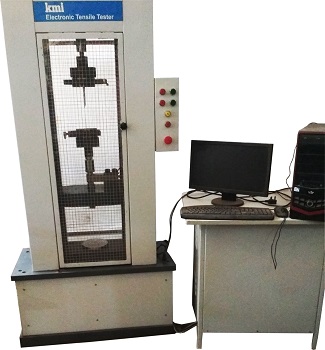
Universal Tensile & Compression Testing Machine
Our clients are offered with an extensive range of Universal Tensile & compression testing machineer that are widely used by all our clients. Our range of universal and mechanical testing machines include, yarn testing machines, mechanical tensile testing machine machines, tensile testing machine machines, computerized tensile testing machine and universal testing machines.